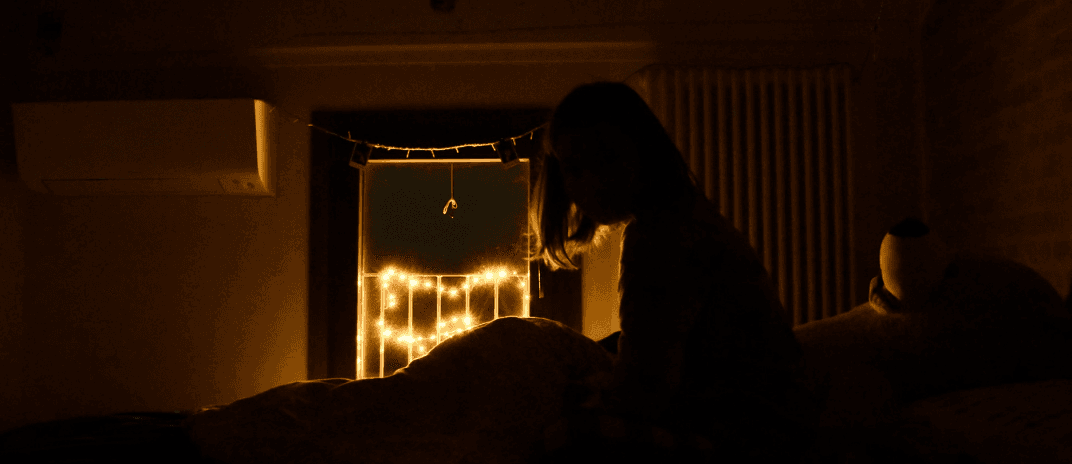


Does ADHD affect sleep? Studies show a strong link between ADHD and disrupted sleep, including difficulty falling asleep, shorter sleep time, and daytime sleepiness.
In this article, we’ll explore the connection between attention deficit hyperactivity disorder and sleep, the impact on symptoms, and strategies to achieve restful nights.
To understand ADHD and sleep, you need to delve into the associations between the two and how they can impact each other.
ADHD is commonly associated with sleep disorders and sleep problems. Published studies have shown that individuals with ADHD may experience hypopnea/apnea, peripheral limb movements in sleep, increased sleep onset latency, shorter sleep time, bedtime resistance, difficulty with morning awakenings, sleep-disordered breathing, night awakenings, and daytime sleepiness.
Furthermore, ADHD often coincides with sleep disorders such as obstructive sleep apnea, peripheral limb movement disorder, restless leg syndrome, and circadian rhythm sleep disorders.
It’s important to note that psychostimulant medications used to treat this condition can disrupt or disturb sleep. Therefore, it’s recommended to assess sleep disturbance during the evaluation of attention deficit hyperactivity disorder.

Individuals with attention deficit hyperactivity disorder commonly experience several sleep problems that can significantly impact their quality of sleep and overall well-being. Sleep disturbance is a common issue among individuals with this condition, and it can manifest in various ways.
For example, many individuals struggle with falling asleep at night, often due to mental restlessness. Restless sleep is also common, with individuals tossing and turning throughout the night and waking up feeling tired. Additionally, intrusive sleep can occur, causing sudden extreme drowsiness during periods of disinterest.
These sleep problems can be disruptive and affect daily functioning. It’s important to address these issues and seek appropriate treatment, which may include medication adjustments, sleep hygiene practices, and behavioral interventions. By addressing sleep problems, individuals can improve their overall sleep quality and well-being.
Now let’s delve into how ADHD medication affects your sleep. When taking medication, it’s important to consider its impact on your sleep patterns.
Here are three ways medication can affect your sleep:
1. Sleep disturbances: Some individuals may experience sleep disturbances, such as difficulty falling asleep or staying asleep when taking ADHD medication. This can result in restless nights and impact your ability to get a restful sleep.
2. Changes in sleep patterns: Medication can cause changes in your sleep patterns, such as shorter sleep time or increased sleep onset latency. These changes can disrupt your normal sleep routine and affect the quality of your sleep.
3. Improvement in symptoms: On the other hand, medication can also improve symptoms that may have been interfering with your sleep, such as hyperactivity or impulsivity. By managing these symptoms, the medication can potentially lead to better sleep quality and more restful nights.
It is important to discuss any sleep disturbances or changes in sleep patterns with your healthcare provider, as they can guide managing these issues and ensuring that you’re getting the restful nights you need.
You can improve sleep for yourself or help your loved one with ADHD by implementing effective strategies. Managing symptoms and promoting restful nights is crucial for individuals with this condition.
Here are some strategies to improve sleep for individuals with ADHD:
1. Establish a consistent sleep schedule: Stick to a regular sleep routine, going to bed and waking up at the same time every day, including weekends.
2. Create a calming bedtime routine: Engage in relaxing activities before bed, such as reading a book, taking a warm bath, or practicing deep breathing exercises.
3. Create a sleep-friendly environment: Make sure the bedroom is quiet, dark, and at a comfortable temperature. Use blackout curtains, earplugs, or white noise machines to minimize distractions.
4. Limit exposure to electronic devices: Avoid using electronic devices, such as smartphones or tablets, before bed as the blue light can interfere with sleep.
5. Avoid stimulating substances: Limit the consumption of caffeine and sugar, especially in the evening, as they can disrupt sleep.
To better understand the relationship between sleep and ADHD symptoms, it’s important to frequently assess how sleep disturbances can impact the daily functioning and overall well-being of individuals with ADHD. Sleep disruption is commonly associated with ADHD, and understanding this connection is crucial for managing symptoms and improving sleep habits.
Here are three key points to consider:
1. Sleep problems are often associated with ADHD: Individuals with ADHD frequently experience difficulty falling asleep, restless sleep, and difficulty waking up. These sleep disruptions can have a significant impact on their overall sleep quality and daily functioning.
2. Sleep problems can mimic symptoms of ADHD: Restricted, disordered, or disturbed sleep can manifest as symptoms or behaviors similar to those of ADHD. It’s important to rule out primary sleep disorders before diagnosing and treating ADHD.
3. Sleep problems can exacerbate ADHD symptoms: Sleep problems can both worsen and be worsened by ADHD symptoms. Addressing sleep disturbances through behavioral interventions or appropriate ADHD medication can help improve overall functioning and well-being for individuals with ADHD.
It is clear that the relationship between sleep and ADHD symptoms is complex and intertwined. By addressing sleep problems, individuals with ADHD can experience improved daily functioning and better manage their symptoms.
Continuing from the previous subtopic, individuals with ADHD commonly experience sleep disturbances that can be indicative of underlying sleep disorders. It’s important to identify and manage these sleep disorders to ensure restful nights for individuals with ADHD.
Polysomnography is a diagnostic test that measures various physiological parameters during sleep to identify sleep disorders. The parameters measured during polysomnography include electroencephalography (EEG), electromyography (EMG), electrooculography (EOG), respiratory parameters, and cardiac parameters.
Common sleep disorders diagnosed with polysomnography include obstructive sleep apnea, insomnia, narcolepsy, restless legs syndrome, and parasomnias. The test is conducted in a sleep laboratory, where electrodes are attached to the scalp, face, and body, and belts and sensors monitor respiratory effort and movement.
Polysomnography provides objective data for treatment planning and can assess treatment effectiveness and progress. However, it may not fully capture certain sleep disorders.
Sleep plays a crucial role in the overall treatment of ADHD. Proper sleep is essential for managing ADHD symptoms and improving overall well-being. Here are three ways in which sleep impacts ADHD treatment:
1. Diagnosing ADHD: Sleep disturbances are common in individuals with ADHD, and recognizing these sleep disorders is important for accurate diagnosis. Sleep problems can mimic ADHD symptoms or exacerbate existing ones, leading to potential misdiagnosis.
2. Treatment of sleep disorders: Addressing sleep disorders in patients with ADHD is crucial for effective management. Identifying and treating sleep problems can improve ADHD symptoms and overall quality of life. This may involve behavioral interventions, medication adjustments, or other sleep-specific treatments.
3. ADHD affects sleep: ADHD itself can disrupt sleep patterns, making it difficult to fall asleep, stay asleep, or wake up in the morning. By addressing ADHD symptoms and optimizing treatment, sleep disturbances can be minimized, leading to better sleep quality and overall functioning.
Understanding the role of sleep in ADHD treatment is essential for developing comprehensive strategies to manage symptoms and improve the overall well-being of individuals with ADHD.
Improving sleep management is essential for enhancing the quality of life for individuals with ADHD. Sleep issues are common in patients with ADHD, and they can significantly impact daily functioning.
Adults with ADHD often struggle with sleep, experiencing difficulty falling asleep, restless sleep, and difficulty waking up. These sleep problems can be disruptive and lead to daytime sleepiness and fatigue.
In some cases, ADHD symptoms may cause sleep problems, while in others, sleep problems can mimic ADHD symptoms, potentially leading to misdiagnosis. It’s important to address these sleep issues to improve sleep quality and overall well-being.
Effective sleep management strategies, such as creating a consistent bedtime routine, practicing good sleep hygiene, and seeking medical intervention if necessary, can help individuals with ADHD achieve restful nights and improve their quality of life.
In conclusion, managing sleep symptoms is crucial for individuals with ADHD to achieve restful nights.
Sleep problems, such as difficulties falling asleep and daytime sleepiness, are commonly experienced by people with ADHD. The use of ADHD medication can also impact sleep quality.
By implementing strategies to improve sleep, such as creating a consistent bedtime routine and creating a calming sleep environment, individuals with ADHD can enhance their overall quality of life and better manage their symptoms.
Prioritizing sleep is an important aspect of ADHD treatment.
Hvolby A. (2015). Associations of sleep disturbance with ADHD: implications for treatment. Attention deficit and hyperactivity disorders, 7(1), 1–18. https://doi.org/10.1007/s12402-014-0151-0